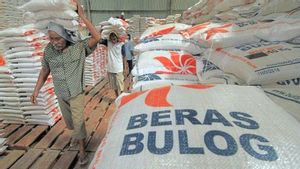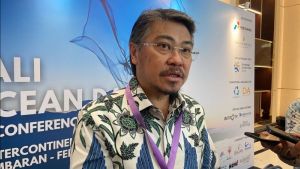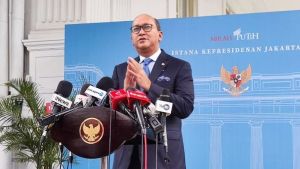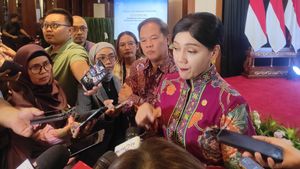JAKARTA - The Financial Services Authority (OJK) noted that the use of the COVID-19 credit restructuring stimulus reached IDR 830.2 trillion since the policy was realized in 2020 until it ended on March 31, 2024. "During the four years of implementation, the utilization of this credit restructuring stimulus has reached IDR 830.2 trillion, which was given to 6.68 million debtors in October 2020, which is the highest figure in Indonesia's history," said OJK Banking Supervision Chief Executive Dian Ediana Rae, in Jakarta, quoted from Antara, Monday, April 1. Dian said as much as 75 percent of the total stimulus recipient debtors were micro, small and medium enterprise segments (MSMEs), or as many as 4.96 million debtors with a total outstanding of IDR 348.8 trillion.
In line with the economic recovery that has occurred, the trend of restructuring credit continues to decline both in terms of outstanding and the number of debtors. In January 2024, the outstanding credit restructuring of COVID-19 has decreased significantly to IDR 251.2 trillion, which was given to 977 thousand debtors.
In facing the end of the COVID-19 stimulus policy, OJK has considered all aspects in depth, namely by looking at the readiness of the banking industry, macro and sectoral economic conditions, and maintaining compliance with international standards.
Based on the evaluation and report on the banking resilience test towards the end of the stimulus, the potential for increasing credit risk (NPL) and bank resilience is projected to be well maintained.
The bank's outstanding COVID-19 restructuring credit continues to decline but the level of reserves (CKPN) formed by banks continues to increase, exceeding the period before the pandemic. "This condition is a reflection of banking readiness which is considered to have returned to normal conditions in a controlled manner (soft landing) ending the stimulus period," he said.
On the other hand, along with the pandemic that has subsided and the government's revocation of pandemic status, the Indonesian economy in almost all sectors has also recovered with a growth of 5.04 percent in 2023.
SEE ALSO:
To ensure the smooth normalization of the policy, banks can continue the ongoing restructuring of COVID-19 credit. Meanwhile, new credit restructuring requests can be carried out by referring to the applicable normal policy, namely OJK Regulation Number 40/2019 concerning Asset Quality.
Thus, the integrity of banking financial statements is expected to be better and can fully refer to the best practices that apply (best practice) financial standards. Along with this, OJK always takes supervisory measures (supervisory action) to ensure the readiness of each bank individually.
The English, Chinese, Japanese, Arabic, and French versions are automatically generated by the AI. So there may still be inaccuracies in translating, please always see Indonesian as our main language. (system supported by DigitalSiber.id)
















